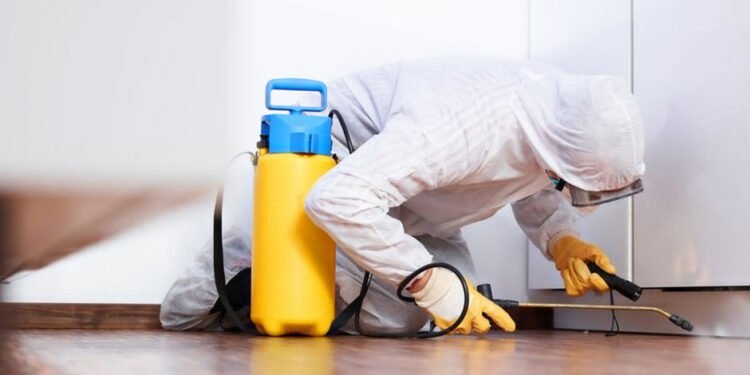Key Takeaways:
- Learn practical methods for controlling common household pests.
- Discover non-chemical approaches to pest management.
- Understand the importance of seasonal inspections and preventive measures.
- Gain insights on choosing the exemplary pest control service.
An Introduction to Pest Control
Maintaining a pest-free home is about comfort, health, and safety. From rodents to cockroaches and ants, various pests can enter our homes, causing serious harm and perhaps transmitting illness. Implementing effective pest control is crucial in ensuring a safe living environment. While homeowners can tackle some pest issues independently, others require professional intervention. For residents in specific regions, a local Fairfield CT exterminator can offer a tailored approach to handle the unique pest challenges of the area.
Identifying Common Household Pests
Recognizing the types of pests likely to invade your home is the foundation of an effective pest control strategy. Ants are among the most common invaders, often finding their way into kitchens and pantries for food. Cockroaches are another frequent visitor, thriving in warm, moist environments such as behind refrigerators or under sinks. Also, mice might enter homes for warmth and cover, which is common during winter.
Identifying the signs of these pests early can prevent them from establishing a presence in your home. Trails of ants, droppings left by rodents, or the musty smell often associated with cockroaches are indicators of an infestation. Staying alert and recognizing early signs of infestation can help homeowners prevent more serious problems. Prompt action is essential to avoid costly damage and health risks. Relying on professional pest control in Shelton CT, ensures effective solutions to address infestations before they escalate, keeping homes safe and pest-free.
Eco-Friendly Pest Control Solutions
In recent years, there has been a significant shift towards adopting eco-friendly pest control solutions. Concerns over chemical pesticides’ health and environmental impact have driven this change. Eco-friendly solutions often leverage natural deterrents, such as essential oils and diatomaceous earth, which can effectively control pests without the harsh side effects of chemicals. The EPA encourages combining these techniques using integrated pest management (IPM), which sustainably targets pests by combining several proactive actions.
IPM focuses on understanding pests’ lifecycles and using that knowledge to disrupt their breeding and nesting patterns. This approach controls the existing pest population and reduces the chances of future infestations. Eco-friendly methods can benefit households with children and pets, minimizing exposure to harmful substances.
Seasonal Pest Prevention Tips
Pest activity is often seasonal, with different types posing threats at various times of the year. Springtime, for example, frequently sees an influx of ants entering homes as they look for food and water. Similarly, mosquito activity increases during the summer, particularly in places where standing water is present. Without preventative measures, these pests can quickly become a nuisance.
- Regularly inspect and seal cracks or gaps in walls and foundations to prevent entry points.
- Ensure that living and outdoor spaces are kept clean and free from clutter, as these can serve as breeding grounds for pests.
- Keep all pet food in airtight containers to keep pests out of your house.
By proactively addressing these issues at the start of each season, homeowners can reduce the likelihood of substantial pest problems.
DIY vs. Professional Pest Control
The decision between do-it-yourself (DIY) pest control methods and hiring a professional can be challenging. DIY solutions can use store-bought traps, bait, or natural remedies like vinegar. These methods are typically cost-effective and may be sufficient for minor pest issues or regular maintenance. However, they often require patience and precision to be effective.
For more severe infestations, professional pest control services provide a comprehensive approach. Experts can access more potent solutions and tools unavailable to the general public. They also bring expertise in identifying and targeting the specific problem areas within a home. Ultimately, while DIY methods can offer a degree of control, professional services can provide a more assured resolution of the issue, especially when dealing with rapidly spreading or hard-to-manage pests.
Choosing the Right Pest Control Service
When choosing a pest control provider, it is crucial to make an informed choice to guarantee positive outcomes. Research is key: Look for companies with a solid reputation, certifications, and positive reviews from previous customers. Also, consider the pest control methods they use—are they environmentally friendly, and are the chemicals they use safe for your home environment?
According to guidance from Consumer Reports, it’s beneficial to ask potential services about their pest control strategies, their experience with similar infestations, and any customer guarantees they offer. Transparency regarding costs and processes should be prioritized to avoid hidden charges.
The Role of Technology in Modern Pest Control
Technology is continuously enhancing our ability to manage and prevent pest infestations effectively. Innovations like electronic pest repellents emitting ultrasonic sound waves help deter pests without chemicals. Additionally, digital monitoring systems allow homeowners and pest control professionals to track pest activity using data analytics, thus preventing infestations before they begin.
These technological advances make pest control more efficient and sustainable. Integrating data-driven technologies gives homeowners the tools to protect their homes more proactively. As the industry evolves, advancements are expected to offer even more sophisticated solutions, balancing efficacy and environmental responsibility.












